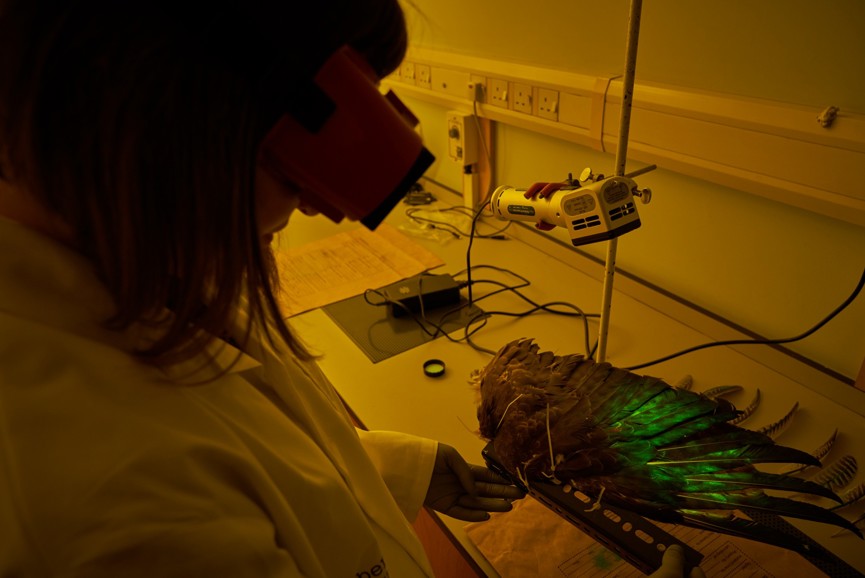Pause carousel
Play carousel

An Abertay University study has discovered that fingerprints can be recovered from bird feathers that have been left outside, exposing them to environmental conditions.
Previous research from PhD Student Helen McMorris had revealed that it was possible to obtain fingerprints from feathers under lab conditions.
For the first time, she has been able to prove it is possible to recover them from feathers that have been exposed to environmental conditions such as wind and rain.
In the long term, it’s hoped the research will have a transformative impact on the number of wildlife crime convictions in the UK.
According to the latest RSPB Birdcrime report there were 68 confirmed incidents of raptor persecution last year, with only four prosecutions. From these, just one led to a successful conviction.
Investigations into such incidents can be extremely difficult as there’s no accurate measure of determining human involvement.
McMorris – also a Teaching Fellow at Abertay - said this makes it difficult to prosecute: “At this moment in time toxicology tests can prove that a raptor has been poisoned, and you can prove that a bird has been shot through x-rays and post mortem.
“But there’s no way of telling if a human has had any contact with that bird if it’s found dead in a field or on a hillside. You have to assume there has been foul play of some description, but you can’t hone in on the actual person responsible.
“This technique potentially gives investigators the chance to prove actual human involvement in raptor persecution, be it through an identifiable fingerprint or a touch mark from a human finger that identifies exact areas of contact on the bird-of-prey.
Head of Science Dr Ben Jones said “As part of Abertay’s research in improving forensic investigation techniques, this study is an important step in moving from the laboratory closer to a real-life situation, as the technique moves from research to development for use in an investigative setting.”
For more information on studying forensic science at Abertay visit http://www.abertay.ac.uk/discover/academic-schools/science-engineering-and-technology/divisionofscience/
To read the study in full visit: http://doi.org/10.1016/j.scijus.2018.09.004